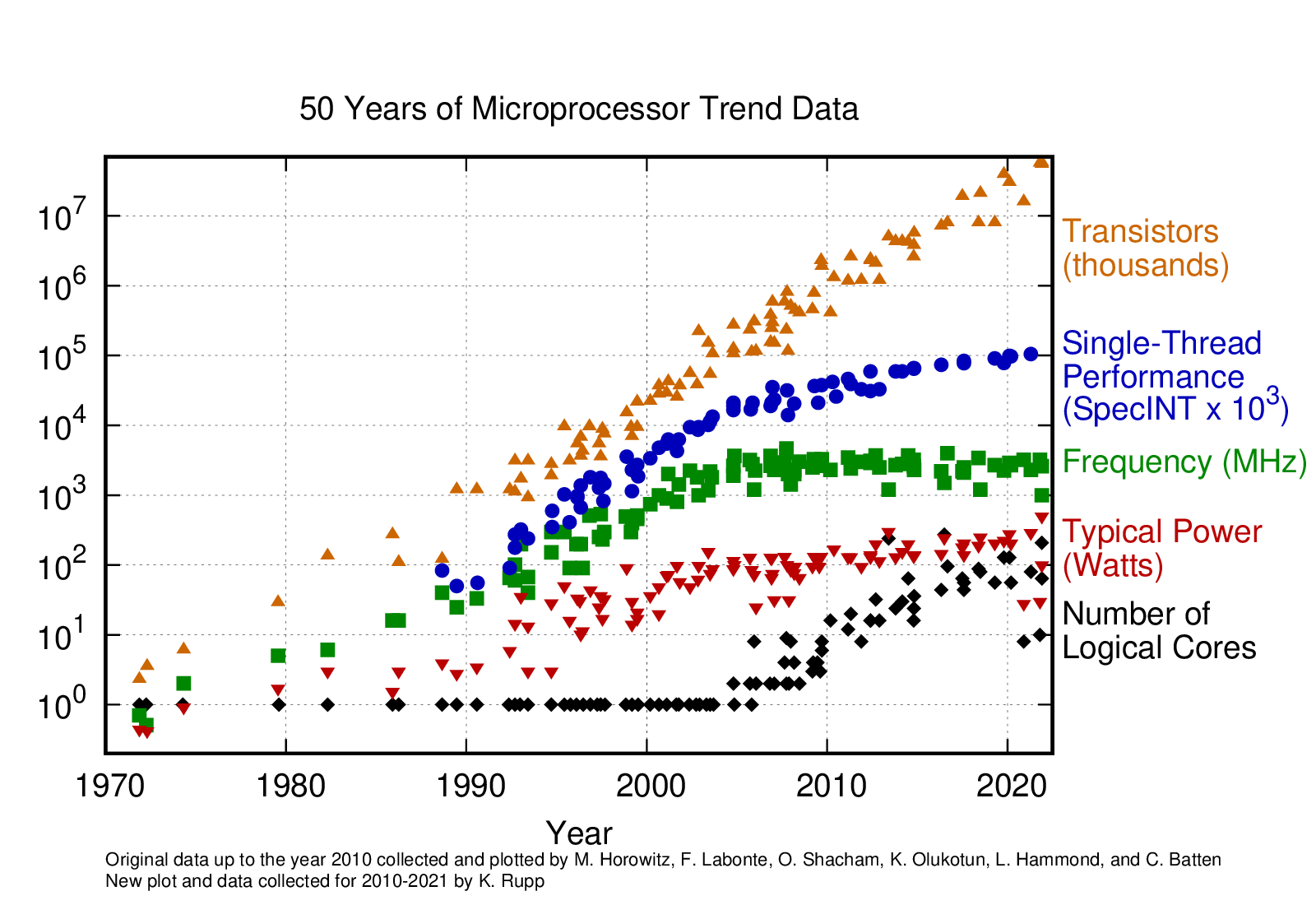Parallel R Workflows: Welcome!
Introduction
Dr Anna Krystallli
R-RSE
https://parallel-r.netlify.app
👋 Hello
me: Dr Anna Krystalli
Research Software Engineering Consultant,
r-rse- mastodon annakrystalli@fosstodon.org
- twitter @annakrystalli
- github @annakrystalli
- email r.rse.eu[at]gmail.com
Editor rOpenSci
Founder & Core Team member ReproHack
Objectives
In this course we’ll explore:
General concepts and strategies to parallelisation.
R packages available for parallelising computation in R.
The
futureversecollection of packages.Deploying Parallel workflows on the Iridis cluster
Background
Computation

Moore’s law
Yet…
we’ve hit clock speed stagnation
About computer hardware
About R
R is an interpreted language
Compiled Languages
Converted directly into machine code that the processor can execute.
Tend to be faster and more efficient to execute.
Need a “build” step which builds for system they are run on
Examples: C, C++, Erlang, Haskell, Rust, and Go
Interpreted Languages
Code interpreted line by line during run time.
significantly slower although just-in-time compilation is closing that gap.
much more compact and easy to write
Examples: R, Ruby, Python, and JavaScript.
R performance
R offers some excellent features: dynamic typing, lazy functional evaluation and object-orientation
Side effect: operations are undertaken in single-threaded mode, i.e. sequentially
Many routines in R are written in compiled languages like C & Fortran.
R performance can be enhanced by linking to optimised Linear Algebra Libraries.
Many packages wrap more performant C, Fortran, C++ code.
R offers many ways to parallelise computations.
About this course
I normally like to live code…BUT!
There’s a lot of materials to get through so I will be copying & pasting from the materials alot
Have the materials handy to follow along
Please stop me for questions or to share your own experiences
Lunch around 1pm






